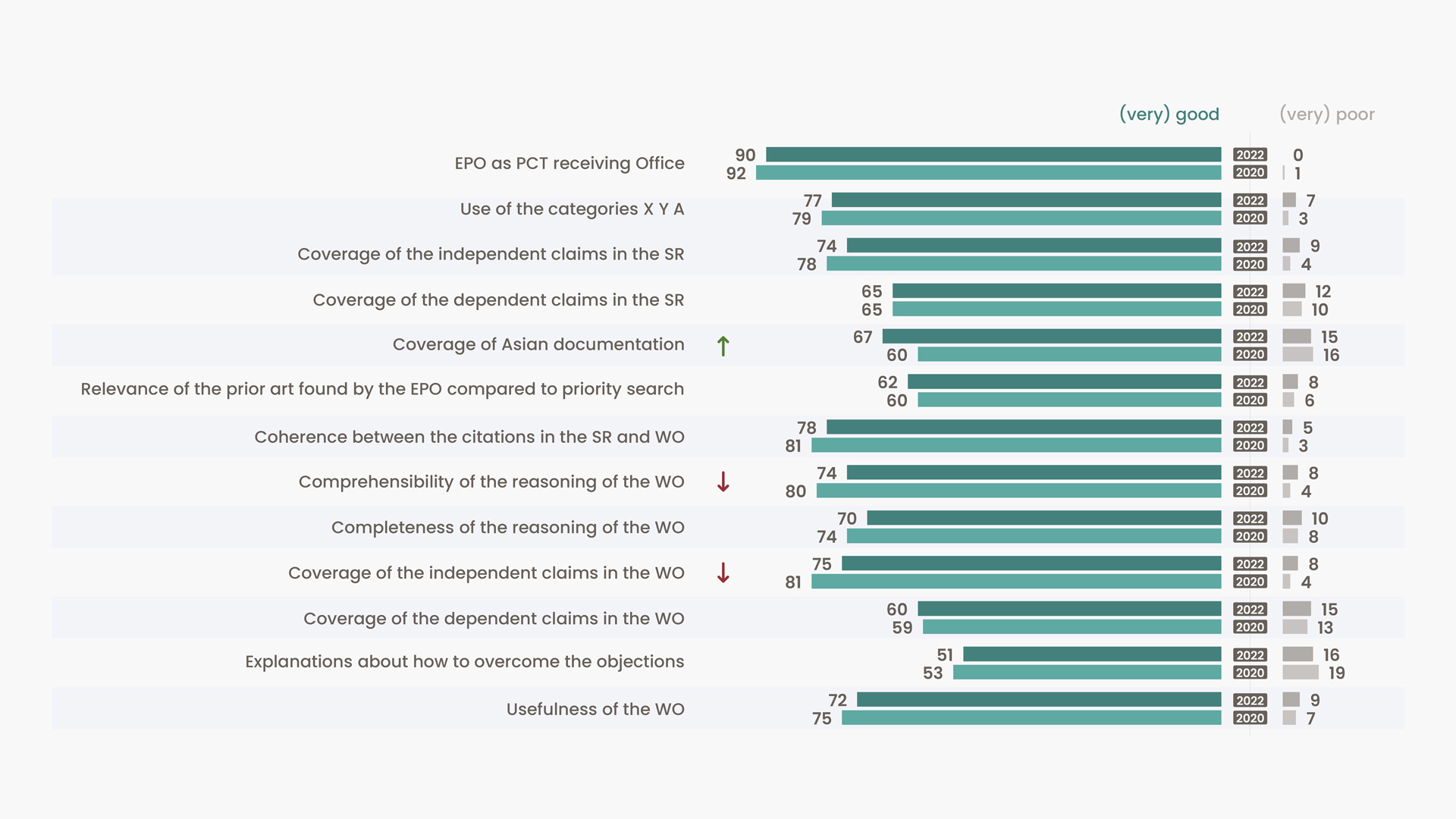Search
We aim to provide complete and accurate search reports and written opinions in a consistent, harmonised manner so you can make the right decisions about your patent application.
Complete and accurate searches and written opinions
Our examiners have access to the largest database of prior art in the world, with billions of technical records dating back to 1782. Our collection is constantly growing and helps us deliver a comprehensive search of the highest quality.
The world’s largest prior art collection
- Patent documents from 106 countries
- 86 million patent families - 153 million publications
- Complete collections from Japan, China and Korea (60 million patent families representing 76 million publications, all available in English full text)
- 129 million non-patent literature groups in-house, combining technical publications and abstracts
- Access to 10 000 academic and technical journals
- 5.1 million standards documents (including drafts)
- 445 000 traditional knowledge documents
- 14 872 Community Plant Variety Office documents
In 2023, the EPO cited Asian-origin prior art in 49.1% of its search reports.

27.9% of EPO search reports contained at least one non-patent literature (NPL) citation in 2023.

4.4% of EPO search reports contained at least one standards document in 2023. The observed decrease in search reports containing standards is largely explained by 25% fewer Euro-PCT with supplementary searches being performed in 2023, as such applications tend to have an above-average share of standards citations.

Collaborative Patent Classification
The EPO uses the Cooperative Patent Classification (CPC) scheme, the world's leading standard classification system, which celebrates its tenth anniversary in 2023.
- Currently used by 38 offices
- Independent of language, enabling EPO examiners to find relevant prior art in Asian languages, for example
Independent quality audits
In response to user feedback and pursuing continuous improvement, the EPO has been implementing an extended search audit since October 2021. In this new approach, auditors take an in-depth look at the written opinion in addition to the search report. The search audit results' bar charts provide a transparent overview of the types of findings relating to clarity and sufficient disclosure of the invention, which are now displayed in separate categories. This provides us with more information which can be used to improve our searches and written opinions.

Importantly, only in 4% of search reports sampled in 2023 did auditors find a better prior-art document, which is considered at search to be a key criterion in the assessment of patentability. The findings relating to novelty and inventive step overall remained stable at around 6% (the 4% better prior art is included in this wider 6%), demonstrating that the overall very high level of quality of search reports was maintained despite an ever-increasing collection of prior art.
As intended, the increased granularity of the extended search audit has revealed several opportunities for improvement. The most frequent issue is still the correctness of objections in the written opinion (11.5% of files in 2023). Often the examiner has been too strict in raising objections. Clearly our aim is to provide an accurate written opinion in which the objections are fully supported by the relevant legislation and any cited document, and this insight from quality audit provides valuable input for future quality improvements.
A consistent and predictable approach
We consistently perform thorough searches and cite high volumes of relevant prior art helping our applicants make informed and timely decisions. In 2023, 83.7% of EPO search reports identified at least one document that was prejudicial to the novelty or inventive step of one or more of the application's claims. Our search reports have remained remarkably consistent in citing these large volumes of relevant citations over the years.

We consistently provide thorough written opinions: 92.4% of written opinions raised at least one objection in 2023.

Delivering complete searches and written opinions on time
Timeliness is important to our users. Mean search timeliness for standard searches (i.e. excluding non-unity, unclear and incomplete cases), was 5.0 months (4.9 months in 2022). 95% of searches and written opinions ("p95" in Figure 30) were dispatched within 9.7 months (8.6 months in 2022). Compared to our search timeliness target of 90%, we achieved a result of 92.3% searches delivered on time in 2023 (89.3% in 2022).

User satisfaction survey
Our regular independent user satisfaction survey shows high levels of satisfaction with our search products. In our 2022/2023 survey, 80% of respondents were satisfied or very satisfied with the EPO's performance in this area.

- SR stands for search report, WO means written opinion.
- Arrows indicate statistically significant changes.
- The results of the USS 2022/2023 have been available since May 2023 and will form the basis for 2023 quality improvement actions.
The next USS results will become available in 2025